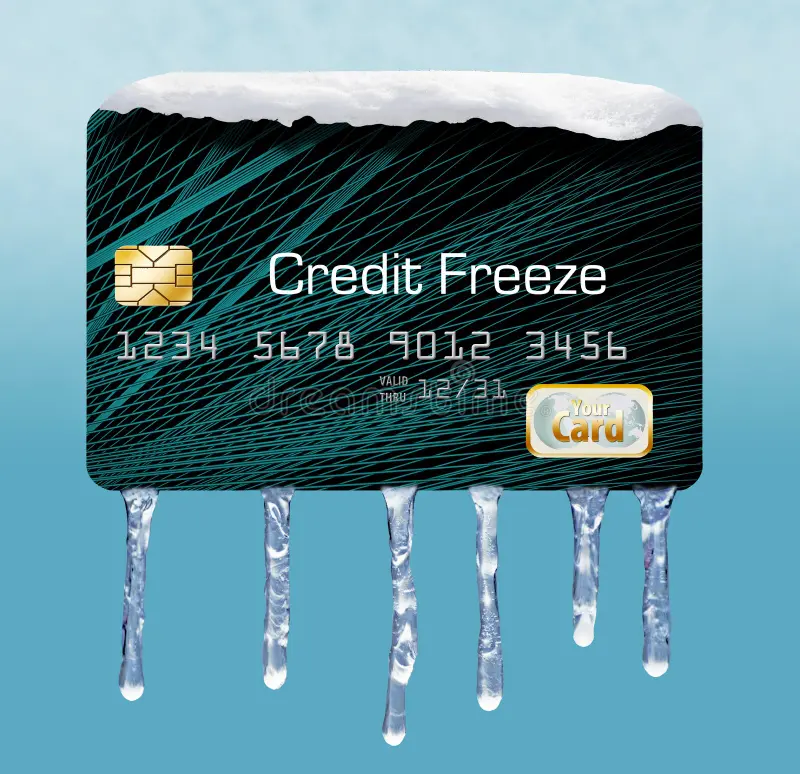What to Know Before Freezing Your Credit

A security freeze or a credit freeze keeps the sensitive data in your credit files from being accessed without consent. A credit freeze is one of the significant manners to help prevent fraud and identity theft, even if the person committing this felony has your private information, such as your social security number, birth date, or anything else.
The great part is that freezing your credit is free, and it does not harm your credit in any way. So, if you are interested in knowing about how to freeze your credit, then say no more. Read on to get expert insights on this matter.
What Is A Credit Freeze?
A credit freeze restricts your access to your credit reports while protecting you against the attempts of scammers to access your credit reports and open fraudulent accounts. If a scammer applies for credit using your personal details, the card issuer or lender typically checks your credit prior to making a decision. So, if you have your new balance frozen, the prospective credit will not be able to check the data needed to approve your application. Now, the million-dollar question “How to lock credit?” Well, here’s how:
How Do You Freeze Your Credit?
Contact each of the three major credit bureaus, Experian, Equifax, and TransUnion, one by one to freeze credit report. You can also ask any credit score monitoring services, such as Gifted Financial Services, to figure out “How to block my credit” or simply help you with it
- Equifax: Go online or call 800-349-9960.
- Experian: For information, call 888‑397‑3742 or go online.
- TransUnion: Go online or call 888-909-8872
The easiest way to lock credit report is online through your profile with each of the secondary credit bureaus. But putting a freeze over the phone is also quick. Bureaus must place the freeze in one business day if you apply it online or through a call. However, if you request it through mail, you will get it frozen in three business days.
Information You Need To Freeze Your Credit
It is a great idea to have all the documents that you will require by your side prior to beginning a credit freeze. While the major credit bureaus have a bit different requirements, here is the information that you would typically require to offer:
- Social Security number
- Date of birth
- Address
If you are confused about how to lock your credit by mail, online, or by phone, then here’s your answer. You only need a few more documents to lock it online or by phone. These documents include:
- A copy of your military ID, driver’s license, or passport
- Proof of your address
- Copy of tax documents, utility bills, or bank statements
You must be aware that if you freeze your credit via phone, be ready to answer some authentication queries, too. Once you figure out how to lock credit score, it will secure your credit report unless you lift the freeze. You can unfreeze your credit whenever you want to.
Why Is My Credit Frozen If I Didn’t Freeze It?
If you come across that one or more of your credit reports are frozen, but you did not start a freeze request, it is certainly something to worry about. There are a few reasons why your credit might have been frozen without you applying for it, such as:
- System errors
- File mix-ups
- Identity theft or fraud
- Data breaches
Can You Freeze Your Credit | Who Can Access?
When you lock my credit, you restrict who can access my credit report. You can still access your credit and can review your credit report for free. Fraudsters would not be able to open new accounts in your name, even if they have your personal information, such as your social security number or more. Any banks that you have contact with will keep on having access to your credit files. To get help with this, you can seek help from credit score services, such as Gifted Financial Services.
Frequently Asked Questions
-
When Should I Freeze My Credit?
Experts recommend freezing your credit files in order to keep an eye on your accounts proactively. Reviewing bank statements, credit card bills, or even credit files from time to time helps a lot. However, these actions are reactive and cannot shoo away potential fraud.
-
How to lock my credit for free?
A credit freeze is a free tool that restricts your access to your credit reports and can help you stay protected against identity theft. While these reports are an ideal resource, they are not a fool-proof method to steer clear of fraud. Credit files decrease access to your credit and restrict new openings of accounts, but they do not stop someone from stealing your credit card number.
-
Does Freezing Credit Affect Score?
Credit freezes do not impact your credit scores. They restrict your access to your credit files, which can keep creditors from checking your credit scores. However, information can still be added and removed from your credit reports. Thus, you can still review your credit scores and reports whenever you wish.
Summing It All Up!
And that is it! This is all you need to know before you freeze your credit. A credit freeze can block access to your credit files. However, there are some major differences. Credit freeze services are free and mandated by federal law. However, a credit lock is something that you must be given voluntarily by a credit bureau, which might cost a fee. If you still require guidance with freezing my credit, then feel free to seek help from experts such as the ones from Gifted Financial Services.



